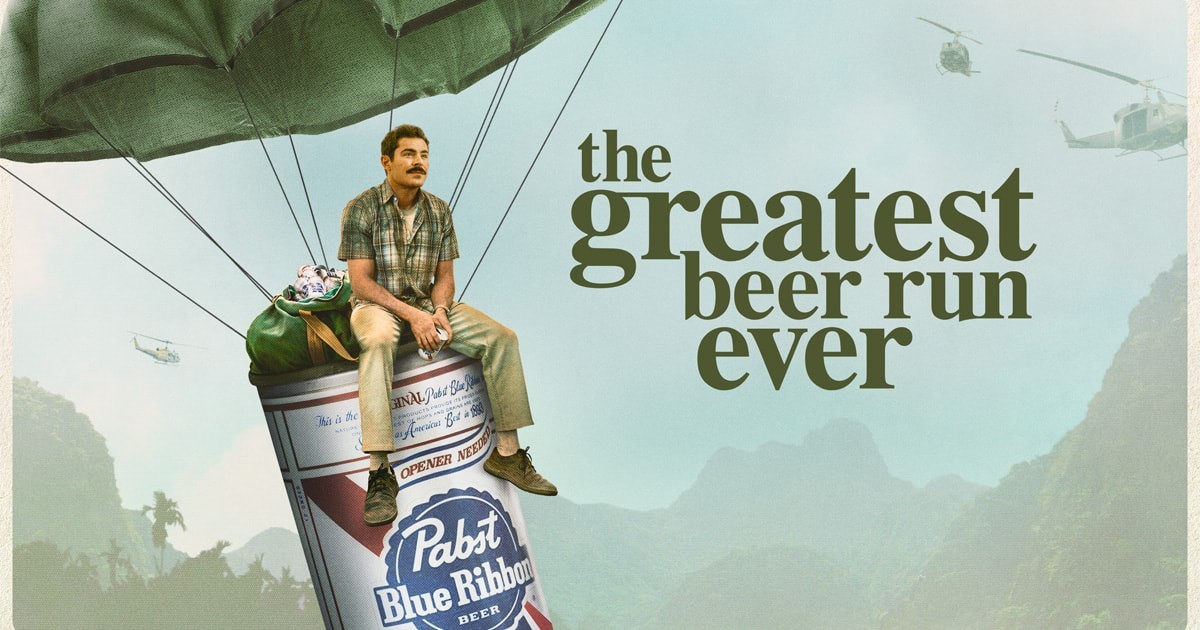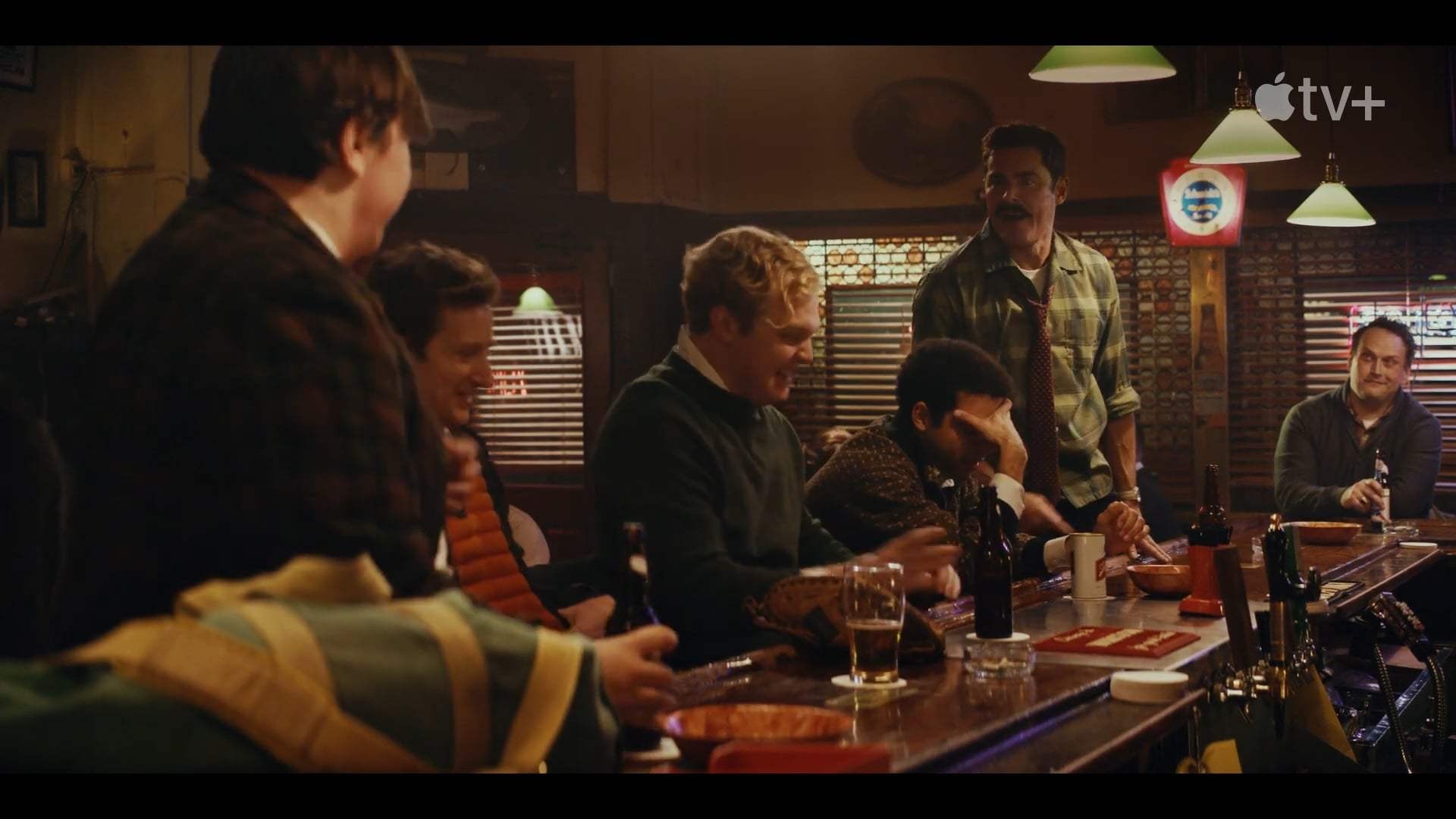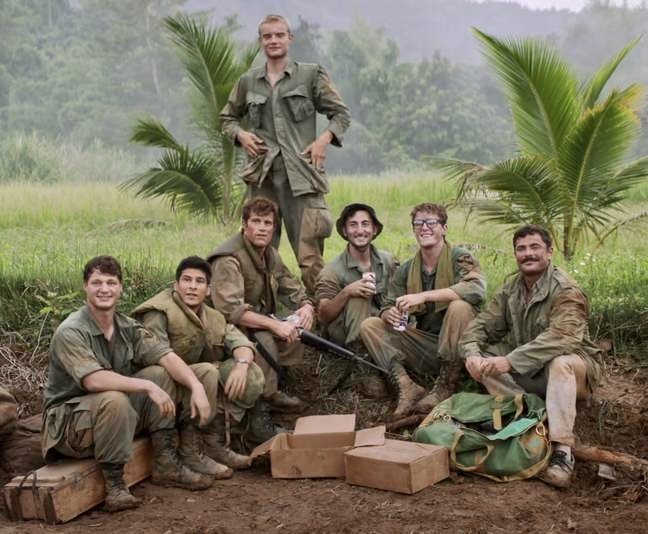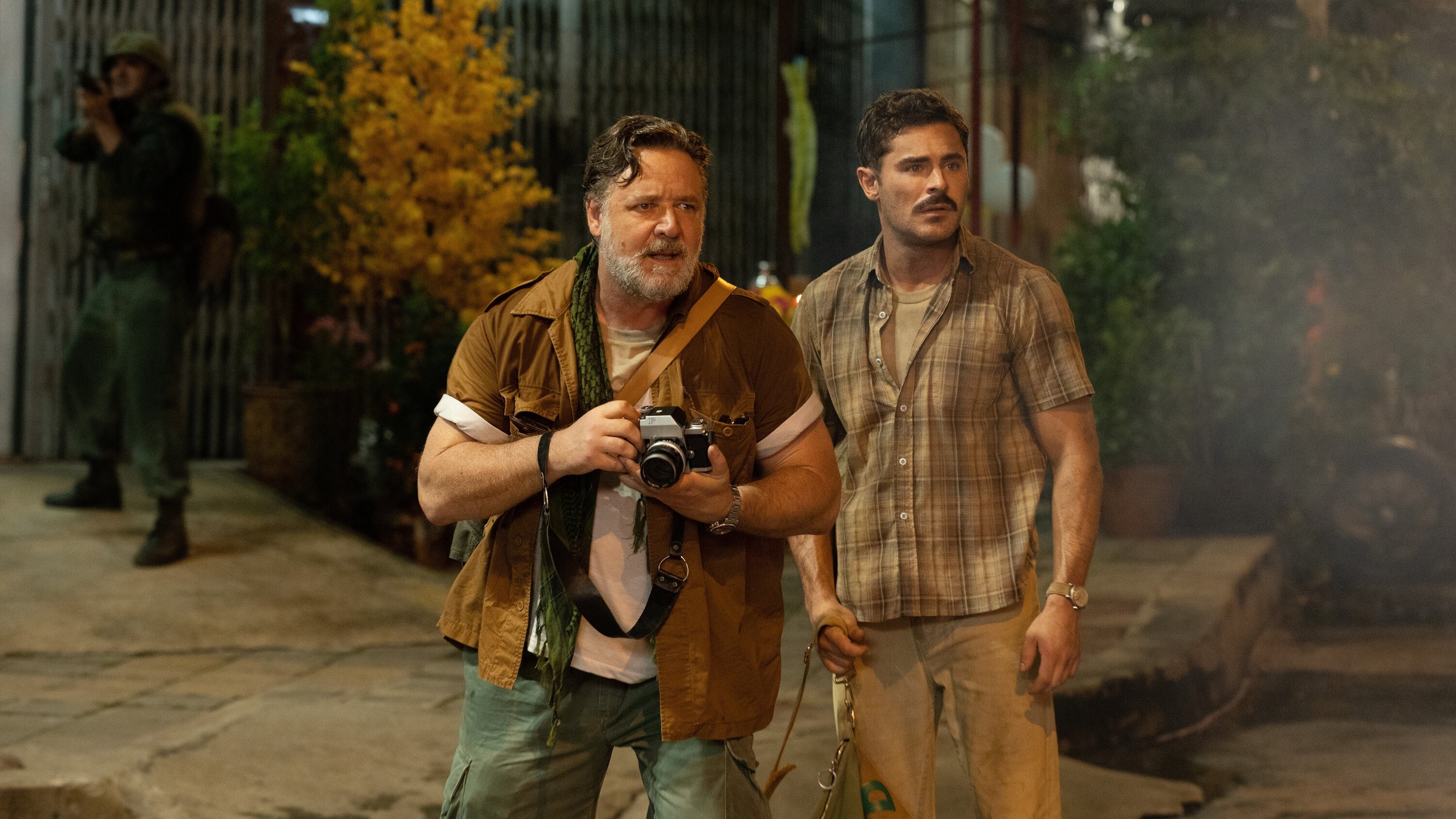Perhaps it was fitting for a bartender to decide to go to Vietnam during the war to deliver beer to his friends who were fighting in the ranks of the United States Army, awakening and enlightening Americans to the horrors of what was happening in Vietnam in 1967.
This is what happened in the true story depicted in the American biographical film "The Greatest Beer Run Ever," released last year.

War films often boast about American power, their army's weapons, aircraft, and naval fleet. However, what happened in the film "The Greatest Beer Run Ever" corrects the misconceptions about a war that caused the death of only 60,000 American soldiers but millions of soldiers and civilians in Vietnam and Cambodia. Some describe it as a proxy war during the Cold War era, awakening the majority of Americans to the fact that it was an unethical and unjustifiable war.
The United States justified its war in Vietnam with the domino theory, which assumed that if one country in a certain region fell under the influence of communism, neighboring countries would follow suit due to the domino effect.

Director Peter Farrelly, known for his comedic works, managed to direct a war film that may not seem deep in its war scenes, but you won't get bored for a moment. He showed the war from the perspective of a curious visitor, not a soldier.
You won't miss a single word, as the screenplay captivates your attention in every scene. You won't feel like two hours have passed while watching a film that resembles an intellectual epic. A person in a bar managed to convey the true image of the war to his friends and family, who did not believe the media at the time, thinking that the war in Vietnam was for defending the homeland.

Zac Efron portrayed the lazy, drunken young man (Chickie Donohue) with skill, while Russell Crowe surprised in his role as war journalist (Coates). Bill Murray was a surprise in his role as the former military colonel, and Ruby Serkis played Chickie's sister (Christine).
How could a person who never woke up early, constantly criticized by his parents, and had no achievements in his academic and professional life capture attention with such a crazy idea? Perhaps the results of crazy ideas are more significant than one can imagine.

Chickie wanted to meet his friends in the neighborhood while they were in the battlefield in Vietnam, only to be shocked by what was more horrific than what television screens portrayed. He returned with new ideas, stating, "I will drink less in the future and think more." Yes, what Chickie and the rest of the Americans lacked at that time was thinking about the feasibility of this war and sending their sons to die on foreign soil.
Chickie returned from Vietnam after a 4-month journey, burdened with scenes he described as a "massacre," which history later recorded. This time, American cinema did not shy away from producing a film about it, showcasing all the disgraceful details of American history in Vietnam.
*The film is based on a true story. Enjoy watching it.
Comments